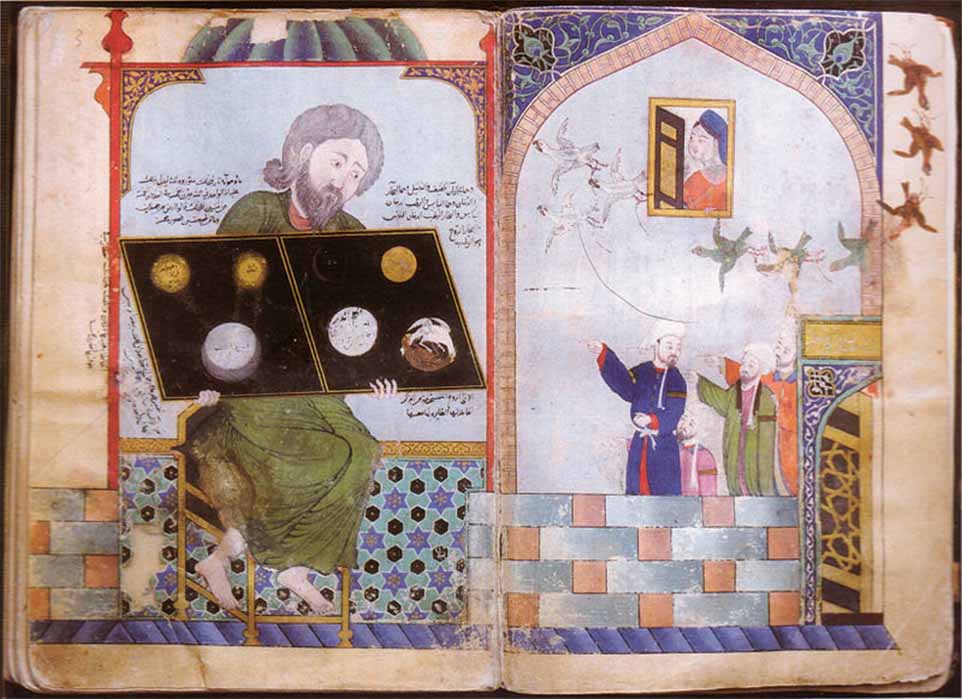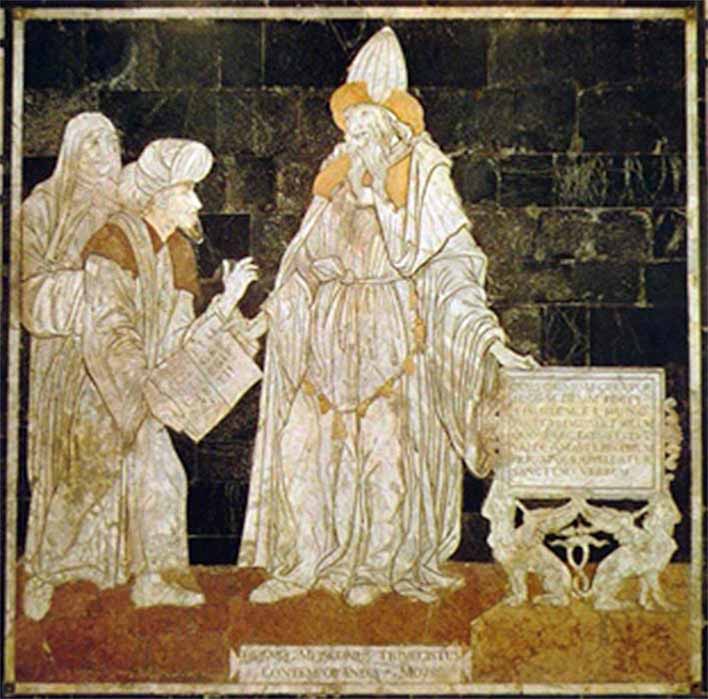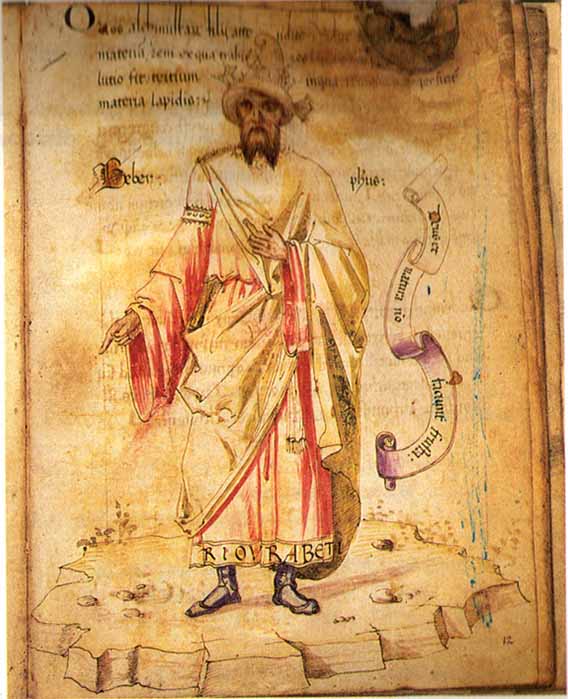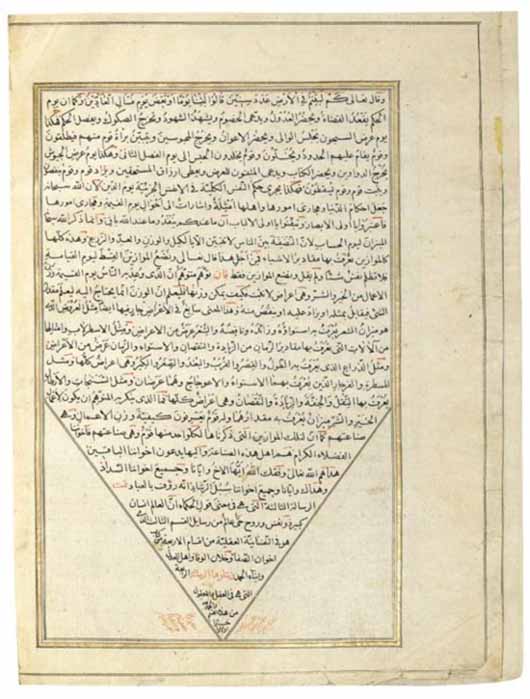
Perfect Nature: Encountering The Self As A Spiritual Guide In The Arabic Hermetica
The Pseudo-Aristotelian Hermetica are a core subgroup of Arabic Hermetic texts which take the form of discourses and letters of the philosopher Aristotle to Alexander the Great. The texts concern an array of subjects, including cosmology, the fabrication of amulets and talismans, and astrological knowledge. In these texts, Aristotle claims to have originally learned the knowledge that he passes on to Alexander from the legendary sage Hermes Trismegistus, who was also the central figure of a body of philosophical, astrological, and alchemical writings composed in Greco-Roman Egypt between roughly 300 BC and 400 AD. Although the Pseudo-Aristotelian Hermetica (hereafter PsAH) and related writings have been dated to the ninth century AD, these Arabic texts are now proven to have carried over and reformulated certain concepts found in more ancient Hermetic writings.

Hermes Trismegistus, floor mosaic in the Cathedral of Siena (Public Domain)
It has been proposed that the core treatises of the PsAH cycle—including the Kitāb al-Isṭimākhīs, Kitāb al-Isṭimāṭīs, Kitāb al-Hādhīṭūs, and Kitāb al-Ustuwaṭṭās—derive from a single original work entitled Kitāb ʿIlal al-rūḥāniyyāt (Book on the Causes of Spiritual Forces). This treatise was abridged as the Kitāb al-Madīṭīs and drawn upon by later texts including the Kitāb al-Shuʿrā al-yamāniyya, the Dhakhīrat Iskandar (Treasury of Alexander), and the Sirr al-asrār (the source text of the Latin Secretum Secretorum). Significant passages from the PsAH cycle were also included in the Arabic occult compendium the Ġāyat al-Hakīm (Latin: Picatrix) compiled in the tenth century AD. Another text that has been associated with the PsAH cycle—even though it does not mention Aristotle—is the Giranis, an Arabic translation of a Greek version of the technical Hermetic treatise the Kyranides (originally composed between the second and fourth centuries AD), which holds the honor of being one of the earliest instances of a Hellenistic text translated into Arabic.

The alchemist Jabir ibn Hayyan, from a 15th century European portrait of Geber, Codici Ashburnhamiani 1166 (Public Domain)
Encountering the Perfect Nature Higher Self
Central to the cosmology of the PsAH are the Rūḥāniyyāt, spiritual beings that transmit astral influences from the celestials to earth. The Rūḥāniyyāt represent the Arabic equivalent of the daimonic energies that emanate from the stars and planets and govern all things in the terrestrial material world in the Greco-Roman Hermetic writings (Corpus Hermeticum 3; CH 16; Joannes Stobaeus SH 6). There is also a special class of Rūḥāniyyāt called the “Perfect Nature” (al-ṭibāʿ al-tāmm). The Perfect Nature is the highest, spiritual self of the individual personified as a guardian and mystagogue encountered during visionary mystical experiences and dreams. In the Greco-Roman Hermetica, the innermost spiritual self of every individual is the Nous (mind), which is consubstantial with the Demiurgic mind that creates the universe. The higher Nous-self is sometimes personified as a tutelary spiritual being—alternately identified as Poimandres (CH 1), Agathos Daimon (CH 12), and the Nous of Hermes (CH 11)—who interprets divine knowledge and visionary revelations. It is this personification of the innermost self that has been transmitted to the Arabic Hermetica as the Perfect Nature.

Kitab Ikhwan al-Safa, late Safavid Iran, (circa 17th century) (Public Domain)
In her recent review of the manuscript evidence, Liana Saif has shown that the oldest text of the PsAH cycle was probably the Kitāb al-Isṭimākhīs, which includes an account of Hermes’s original teaching regarding the Perfect Nature: “Hermes was asked: By what means does he [the sage] bring down wisdom? He said: By means of the Perfect Nature. He was asked: What is the key of wisdom? He said: The Perfect Nature. He was asked: What is the Perfect Nature? He said: The rūḥāniyya of the philosopher, which is connected to his star and its governor, unlocking for him the latches of wisdom and teaching him all that puzzles him, inspires him with its own awareness and hands him the key to its wisdom gates in sleep and in wakefulness.”




